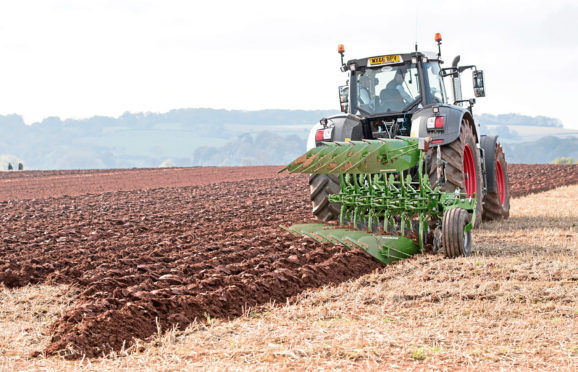Brexit “could bust” more than 21,000 farms across Scotland, shock new analysis has found.
The risk to farms comes due to the potential loss of subsidy payments that are currently made by the European Union.
The latest UK Government figures show that around four in 10 farms across the country would make a loss without direct payments from the EU.
In 2018, total farming income in Scotland stood at £672million and just under 80%, £500million, of that figure was made up from EU subsidies.
Despite the reliance on EU payments, the UK Government has not yet committed to farming subsidies beyond 2022, leaving tens of thousands of family farms across the country potentially at risk.
Orkney and Shetland MP Alistair Carmichael, who is the Lib Dem’s agriculture spokesman, called on the UK Government to take urgent action to guarantee payments.
He said: “Brexit risks sounding the death knell for thousands of family farms across Scotland.
“Scottish farmers are now even more reliant on support from the EU, yet the Conservatives have made no commitment to protect them in future.”
NFU Scotland President Andrew McCornick told the Press and Journal that a UK agricultural budget to replace EU funding was “absolutely necessary”.
He said: “We have taken this clear message to the UK and Scottish Governments and will continue to do so.
“In order for agriculture to continue in Scotland and for the Scottish food and drink industry to have a prosperous future outside of the EU we need a commitment from the UK Government for a future ring-fenced, multi-annual agricultural budget for Scotland of at least the same quantum as we have now.”
He added: “If farming were to be allowed to decline it would be lost for ever. This would be devastating for Scotland’s food and drink industry, the largest manufacturing sector left in Scotland, devastating for rural economies and terrible for the environment.
“The money generated by a healthy farming industry is not only vital for farmers and crofters but also for the wider rural economy in Scotland. A UK agricultural budget will be absolutely necessary if these communities are to thrive in the future.”
Rural Economy Secretary Fergus Ewing welcomed the demands for clarity, saying he had “repeatedly pressed” the UK Government for more detail.
He said: “We are determined to support our rural and farming communities – and the proposals I set out for farming and food production last June outline a clear five year plan to provide stability and simplicity through the Brexit transition and beyond. Scotland is the only part of the UK with such a detailed transition plan.
“But as statistics make clear, EU funding provides significant and vital support to Scotland’s farmers and crofters – and it is the best interests of rural Scotland to remain part of the EU, not least because that also secures free trade and free movement of people.”
A UK Government spokesman said: “Our pledge to commit the same cash total in funds for farm support until the end of this parliament, expected in 2022, offers greater security to farmers that what is currently on offer by the EU, whose current commitment only runs to 2020.”
